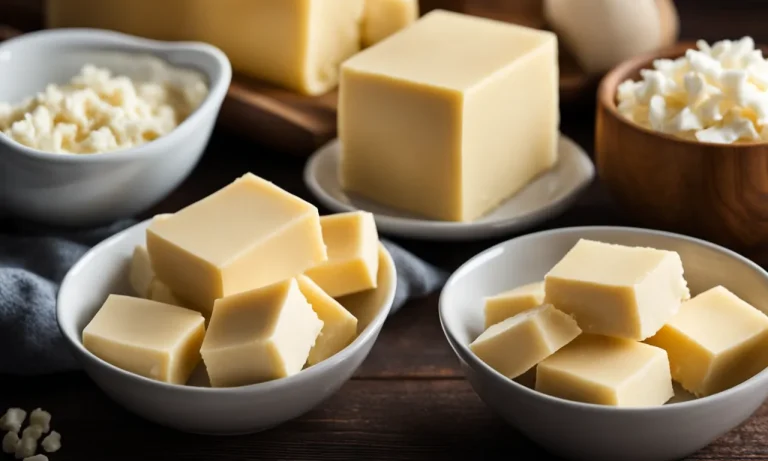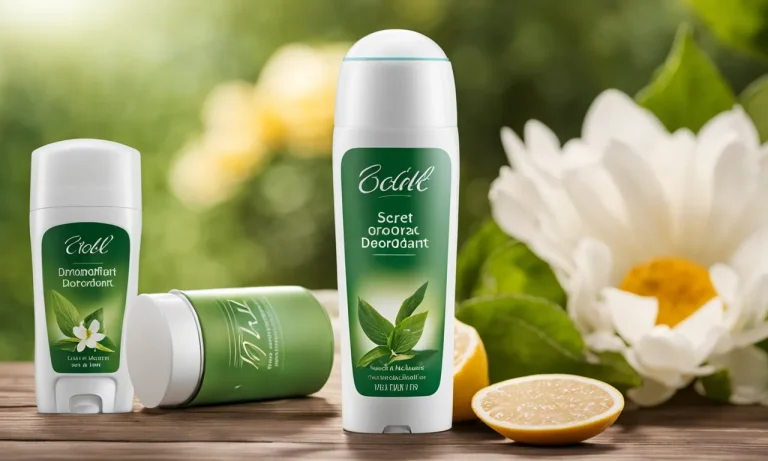Are Fish Eggs Vegetarian? Evaluating Roe Through Different Lenses
For vegetarians who abstain from eating meat, fish eggs like caviar, masago, and tobiko present an ethical gray area. With their widespread use as a garnish or snack, understanding whether roe aligns with vegetarian principles is key.
If you’re short on time, here’s the quick answer: Most vegetarians do avoid fish eggs and roe due to coming directly from animals. However, some may eat roe occasionally based on their personal boundaries.
In this nearly 3,000 word guide, we perform a deep dive on the ethics of fish eggs for vegetarians. We’ll examine philosophical perspectives, nutrition profiles, sourcing controversies, and healthier egg substitutes to empower decision making.
Ethical Perspectives – Are Fish Eggs Off Limits for Vegetarians?
When it comes to defining vegetarianism, opinions can vary. Some vegetarians choose to exclude all animal products from their diet, including fish eggs, also known as roe. Others, however, may have different perspectives on whether consuming fish eggs aligns with their ethical beliefs.
Let’s explore some of the key ethical arguments surrounding this topic.
The Cruelty Argument
One ethical perspective against consuming fish eggs is based on the idea that it involves cruelty towards animals. Fish eggs are typically obtained through a process called “stripping,” which involves manually extracting the eggs from the female fish.
This process can be stressful and potentially harmful to the fish. Therefore, individuals who prioritize animal welfare may choose to avoid consuming fish eggs.
Moreover, concerns regarding the depletion of fish populations and overfishing practices also factor into the cruelty argument. The demand for fish eggs can contribute to unsustainable fishing practices, which can harm marine ecosystems and disrupt the balance of aquatic life.
Environmental Impact Considerations
From an environmental perspective, the consumption of fish eggs can raise concerns. Overfishing and destructive fishing methods can have severe consequences for marine biodiversity and ecosystems. By choosing not to consume fish eggs, some individuals aim to reduce their ecological footprint and contribute to the preservation of marine life.
Additionally, the production and packaging of fish eggs may contribute to pollution and waste, further impacting the environment. By avoiding fish eggs, environmentally conscious vegetarians can align their dietary choices with their commitment to sustainability.
Views from Different Types of Vegetarians
Within the vegetarian community, there are different types of vegetarians with varying dietary restrictions and beliefs. For example:
- Lacto-ovo vegetarians: These individuals exclude meat and seafood from their diet but may consume eggs and dairy products. Some lacto-ovo vegetarians may choose to include fish eggs in their diet, while others may choose to abstain.
- Ovo-vegetarians: These vegetarians consume eggs but avoid other animal products. Some ovo-vegetarians may choose to include fish eggs in their diet, while others may consider them off-limits.
- Vegans: Vegans strictly avoid all animal products, including eggs, dairy, and fish eggs.
It’s important to note that there is no universally agreed-upon definition of vegetarianism, and individuals may have their own personal interpretations and dietary choices.
Ultimately, whether fish eggs are considered vegetarian or not depends on an individual’s ethical beliefs and personal dietary choices. For those who prioritize animal welfare and environmental sustainability, avoiding fish eggs may align with their values.
However, it is essential to respect and understand the diverse perspectives within the vegetarian community.
Nutritional Profile of Fish Eggs and Roe
Fish eggs, also known as roe, are highly valued for their unique taste and texture. They come in various forms, such as caviar, ikura, and tobiko, and are considered a delicacy in many cuisines around the world. But what exactly is the nutritional value of fish eggs? Let’s take a closer look.
Protein, Healthy Fats, and Vitamins
Fish eggs are packed with protein, making them an excellent source of this essential macronutrient. They also contain healthy fats, including omega-3 fatty acids, which are known for their numerous health benefits.
These fats are crucial for brain function, heart health, and reducing inflammation in the body.
In addition to protein and healthy fats, fish eggs are rich in vitamins and minerals. They are particularly high in vitamin B12, which is essential for nerve function and the production of red blood cells. Fish eggs also contain vitamins A, D, and E, as well as minerals like selenium and iodine.
Mercury and PCB Contamination Risks
While fish eggs offer a range of nutritional benefits, it’s important to be aware of potential risks associated with consuming them. One concern is the presence of mercury and polychlorinated biphenyls (PCBs) in certain fish species, which can accumulate in their eggs.
Mercury is a toxic heavy metal that can have harmful effects on the nervous system, especially in developing fetuses and young children. PCBs are industrial pollutants that have been linked to various health issues, including cancer and reproductive problems.
To minimize these risks, it’s advisable to choose fish eggs from low-mercury fish species and reputable sources. Pregnant women, nursing mothers, and young children should consult with their healthcare providers before including fish eggs in their diets.
How Nutrition Compares to Eggs and Meat
When comparing the nutritional value of fish eggs to other animal-based foods, such as eggs and meat, there are some notable differences. Fish eggs generally contain more omega-3 fatty acids than chicken eggs, making them a great choice for those looking to increase their intake of these beneficial fats.
However, it’s worth noting that fish eggs tend to be higher in cholesterol compared to chicken eggs. While dietary cholesterol doesn’t have as significant an impact on blood cholesterol levels as previously believed, individuals with certain health conditions may need to monitor their cholesterol intake.
When it comes to meat, fish eggs offer a unique combination of nutrients that may not be found in other types of meat. They are an excellent source of essential amino acids, which are the building blocks of protein.
Moreover, the presence of omega-3 fatty acids sets fish eggs apart from most meat options.
The Controversy Around Caviar Sourcing and Harvesting
When it comes to the world of culinary delights, caviar holds a special place. However, the sourcing and harvesting of caviar, particularly fish eggs or roe, has stirred up quite a controversy. Let’s delve into the different lenses through which this issue can be examined.
Overfishing and Tracking Concerns
One of the main concerns surrounding caviar sourcing is the impact it has on fish populations. Overfishing, driven by the high demand for caviar, has led to a decline in certain fish species. This has disrupted marine ecosystems and endangered the survival of these species.
Additionally, the lack of proper tracking and regulation makes it difficult to ensure that caviar is sourced sustainably and legally.
An example of the negative impact of overfishing can be seen with the beluga sturgeon, whose eggs are highly sought after for their exquisite taste. According to the International Union for Conservation of Nature (IUCN), the beluga sturgeon is critically endangered due to overfishing for caviar production.
This highlights the urgent need for stricter regulations and sustainable practices in the caviar industry.
Wastefulness of Mass Harvesting
Another aspect of the controversy surrounding caviar sourcing is the wastefulness of mass harvesting methods. Traditional harvesting methods involve killing the fish to extract their roe, resulting in a significant loss of life.
This raises ethical concerns about the treatment of animals and the sustainability of such practices.
However, advancements in technology have allowed for the development of alternative methods that are less harmful to the fish. For example, some farms use techniques that extract the eggs without sacrificing the fish, thus promoting a more ethical and sustainable approach to caviar production.
Efforts to Promote Sustainability
Recognizing the environmental and ethical concerns associated with caviar sourcing, various organizations and initiatives have been established to promote sustainable practices. These efforts aim to ensure the long-term viability of fish populations and protect marine ecosystems.
One such initiative is the Caviar Emptor campaign by the Seafood Watch program, which educates consumers about sustainable caviar choices. The campaign encourages consumers to choose caviar from farms that adhere to responsible farming practices and avoid purchasing caviar from endangered species.
Furthermore, international agreements and regulations, such as the Convention on International Trade in Endangered Species of Wild Fauna and Flora (CITES), have been put in place to regulate the trade of caviar and protect endangered fish species.
It is important for consumers to be aware of the impact their choices can have on the environment and to support sustainable caviar practices. By making informed decisions and supporting initiatives that promote responsible sourcing, we can contribute to the preservation of fish populations and the conservation of our oceans.
Innovative Substitutes for Roe Garnishes and Toppings
For those who follow a vegetarian or vegan lifestyle, finding suitable substitutes for fish roe can be a challenge. However, there are several innovative options that can add a similar burst of flavor and texture to your dishes. Let’s explore some of these alternatives:
Kelp Pearls
Kelp pearls are an excellent substitute for fish roe due to their similar appearance and texture. Made from seaweed, kelp pearls offer a mild umami flavor that complements various dishes. These tiny, briny pearls can be used as a topping for sushi, salads, or even as a garnish for soups and stews.
They provide a satisfying pop when bitten into, just like fish roe, making them a great vegetarian alternative.
Capers or Cornichons
If you’re looking for a tangy and salty alternative to fish roe, capers or cornichons can be a perfect choice. Capers, which are the pickled flower buds of the caper bush, and cornichons, which are small, tangy pickles, can add a burst of flavor to your dishes.
They can be finely chopped and sprinkled over salads, pasta dishes, or used as a garnish for appetizers. These substitutes offer a similar briny taste to fish roe and can elevate the overall flavor profile of your dish.
Salt Cured Vegetables
For a more unique and adventurous substitute, salt-cured vegetables can provide a savory and flavorful alternative to fish roe. Vegetables like carrots, radishes, or cucumbers can be thinly sliced and cured in a mixture of salt and vinegar.
The curing process imparts a tangy and slightly salty taste to the vegetables, mimicking the flavor profile of fish roe. These salt-cured vegetables can be used as a topping for sandwiches, rice bowls, or even as a standalone appetizer.
It’s worth mentioning that while these alternatives can provide a similar taste and texture to fish roe, they may not exactly replicate the unique flavor of fish eggs. However, they offer creative and satisfying options for those who prefer to avoid consuming animal products.
For more information on vegetarian and vegan alternatives, you can visit Vegetarian Times or Vegan.com.
The Verdict – Are Fish Eggs Off the Table for Vegetarians?
When it comes to determining whether fish eggs, also known as roe, are suitable for vegetarians, opinions vary. While some vegetarians choose to include eggs in their diet, others strictly adhere to a plant-based lifestyle, abstaining from any animal-derived products.
To evaluate whether fish eggs can be considered vegetarian-friendly, it’s important to consider different perspectives and factors.
The Vegetarian Perspective:
From a vegetarian standpoint, the definition of vegetarianism typically involves the avoidance of meat and seafood. Vegetarians often choose this lifestyle for ethical, environmental, or health reasons.
As such, many vegetarians would not include fish eggs in their diet, as they are derived from animals and fall under the category of seafood.
The Pescatarian Perspective:
Pescatarians, on the other hand, follow a diet that includes fish and seafood but excludes other types of meat. For pescatarians, fish eggs can be seen as a viable option since they come from fish. Some pescatarians choose to consume fish eggs for their nutritional benefits and unique flavors.
Nutritional Value:
Fish eggs, particularly those from species like salmon, trout, or sturgeon, are rich in essential nutrients. They are a good source of omega-3 fatty acids, which are beneficial for heart health. Fish eggs also provide vitamins, minerals, and high-quality protein.
However, it’s worth noting that these nutrients can also be obtained from plant-based sources, making fish eggs not essential for a balanced vegetarian diet.
Ethical Concerns:
From an ethical standpoint, some vegetarians may have reservations about consuming fish eggs. The fishing industry can have negative impacts on marine ecosystems, including overfishing and bycatch. Additionally, there may be concerns about the treatment of fish during the egg extraction process.
These factors may influence a vegetarian’s decision to exclude fish eggs from their diet.
Conclusion
When weighing ethical, environmental, and nutritional factors, most vegetarians consider fish eggs and roe to be off-limits food items.
However, personal choice and boundaries come into play, so individuals following plant-based diets must decide what’s right for them. With creative substitutes available, foregoing fish eggs can still leave lots of delicious garnish options.







